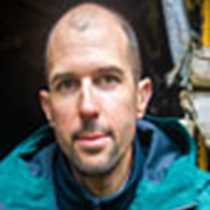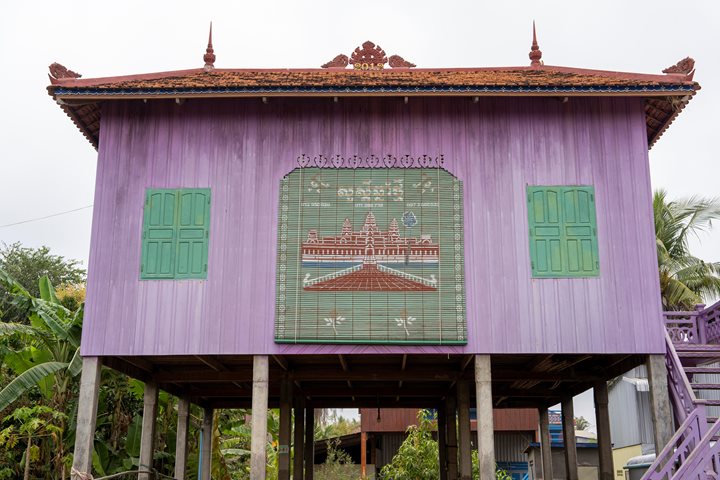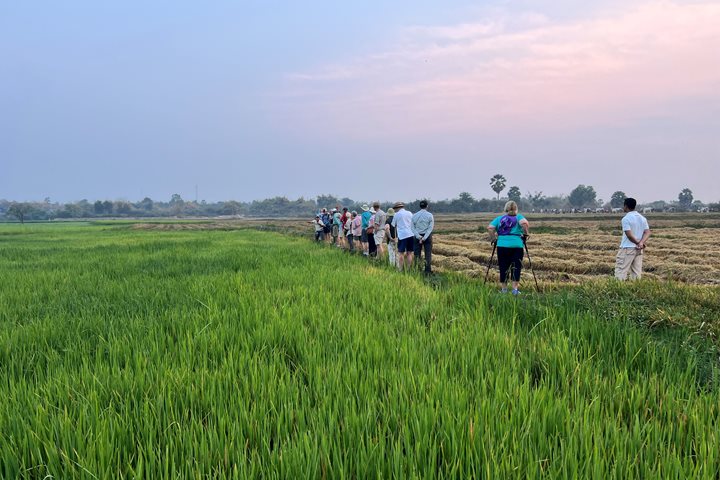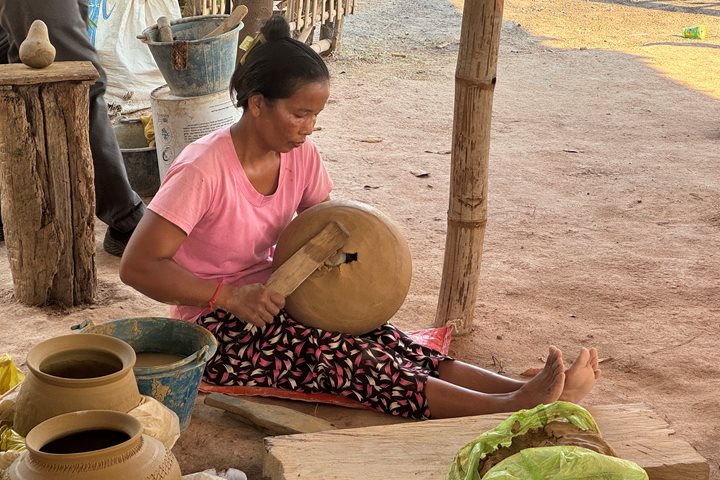We enjoyed a brief excursion ashore in Phnom Penh to see the city coming to life in the early morning light. Motorbikes buzz down the road, people exercise along the river shore, and market vendors set up numerous displays. Our tour brings us to a large Dipterocarpus tree that hosts a colony of Lyle’s fruit bats, underneath which naturalist Martin Cohen gives us a rundown on their behaviour and ecology.
This morning Jahan casts off early and we make our way up the Tonle Sap River. Today we have a guest presenter join us aboard the ship. Jean-Michel Filippi is a professor at Phnom Penh University. He takes us through the history of Cambodia from the end of the French Protectorate to the present day; one of the most tumultuous periods of Cambodian history ever. The senseless acts of the ruthless Khmer Rouge regime are beyond comprehension, yet his rendering of the players and events does well to help us make sense of it all.
After lunch we drop anchor at Kampong Chhnang, the “Port of the Cooking Pots,” which is the provincial capital of the central province of Cambodia. The river is also home to a Vietnamese floating village, of which more than a hundred are found throughout Cambodia. Typically, these people live a marginalized existence, as many came during the war without any documentation. Like those in Vietnam, these houses also feature fish cages below the waterline, but many of these are held afloat by bamboo as opposed to plastic drums.
Taking local boats to shore, we drive out to a small village at the foot of a mountain. The women in this village carry on a traditional handicraft that extends back several generations. One of these trades is the making of earthen cookware. For this, the clay used is sourced locally from the foot of the mountain, and fuel for the bonfires is leftover straw from the rice harvest. In this way, sustainability is an integral part of life in this region of the world.









